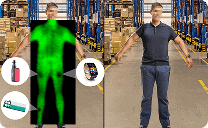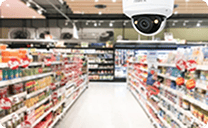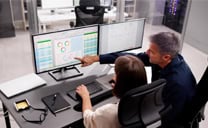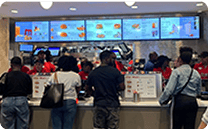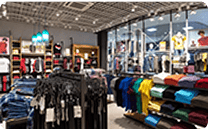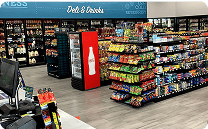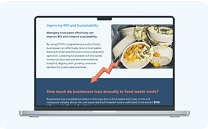In This article
Compliance monitoring is a system of oversight designed to confirm that a business follows the laws and industry standards relevant to its operations. These standards may include workplace safety rules, personal health information, labor laws, financial regulations, or sector-specific mandates like food handling procedures or access control in secure environments.
This form of monitoring is not limited to heavily regulated industries. Retail, restaurants, logistics, and hospitality businesses face legal expectations regarding cleanliness, employee behavior, data privacy, and customer safety. Consistent monitoring helps companies to recognize non-compliance early and address issues before they lead to legal action, reputational harm, operational disruption, or financial penalties.
How Compliance Monitoring Helps
Technology plays a critical role in compliance monitoring. Surveillance systems, access control tools, and audit software provide data-driven visibility into daily activity. When properly integrated, these systems allow businesses to identify policy breaches and track corrective actions. For example, a store can use video footage to verify whether employees follow cash-handling rules, or a restaurant can review footage to confirm that health protocols are consistently applied during food preparation.
Effective compliance monitoring typically involves:
- Real-time observation of operations through surveillance, remote access, or on-site inspections.
- Recordkeeping to create an audit trail of activity tied to specific timeframes, systems, or staff members.
- Analytics and alerting to highlight violations, unusual behavior, or missed procedures.
- Reporting that supports internal audits, training initiatives, or regulatory documentation requests.
Beyond identifying what went wrong, compliance monitoring also helps businesses recognize what’s working. Reviewing consistently compliant behavior can reinforce training, highlight effective leadership, and provide positive feedback that supports morale.
A well-structured compliance monitoring program allows businesses to:
- Detect violations of labor laws, such as missed breaks or improper scheduling.
- Verify compliance with hygiene and safety protocols required by public health agencies.
- Monitor for adherence to financial reporting standards or transaction documentation rules.
- Maintain secure access to restricted zones or equipment.
- Prepare for external audits with detailed and timestamped records of compliance-related activity.
- Protection of an individual’s personal data. (credit card, health information, etc.).
Importantly, compliance monitoring supports both legal and operational goals. It reinforces a company’s commitment to doing things correctly, which builds trust with employees, customers, and regulators.
Compliance monitoring becomes part of the company culture when implemented as a supportive rather than punitive practice. Teams are more likely to follow procedures when they know they are supported by systems that promote safety, fairness, and legal alignment.
Strengthen Compliance with DTiQ
The 360iQ platform gives businesses the tools to track and verify compliance across locations by integrating surveillance footage, operational data, and behavioral insights into a single platform. Whether you’re accountable for public safety standards, workplace regulations, or internal policies, DATAiQ helps you document activity, highlight areas for improvement, and support a culture of consistent, legally aligned performance. Contact us to learn more.
